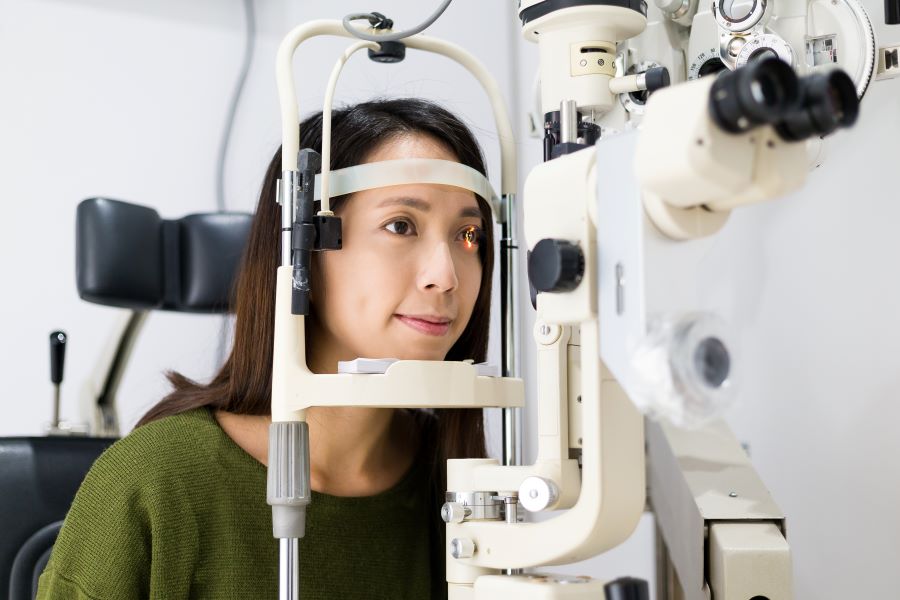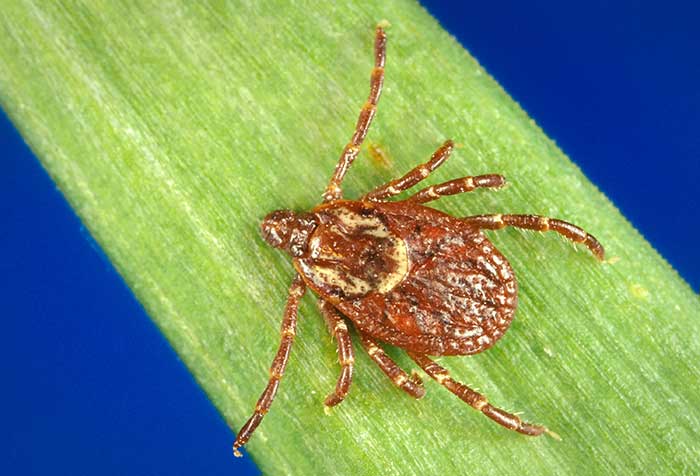Facial nerve dysfunction after treatment for Lyme disease
Some individuals with Facial Nerve Palsy (Bell’s palsy) have reportedly had facial nerve dysfunction, as long as one year after antibiotic treatment for Lyme disease. Some suffer from synkinesis, where patients present with unwanted contractions of the muscles of the face during attempted movement. They may notice forceful eye closure when they attempt to smile or other muscle spasms during routine facial movements.
Babesia and Anaplasmosis in a child with B-cell acute lymphoblastic leukemia
Parents have enough to worry about if their child suffers from an underlying disease. In this case report “Do Not Forget About the Ticks: An Unusual Cause of Fever, GI Distress, and Cytopenias in a Child With ALL,” Ungar and colleagues describe a 5-year-old boy with B-cell acute lymphoblastic leukemia, who also contracted Babesia and Anaplasmosis. [1]
Anaplasmosis leading to neurological symptoms of trigeminal neuralgia
Anaplasmosis, formerly called human granulocytic anaplasmosis (HGA) is a co-infection from a tick that typically causes acute disease. In their article, "Trigeminal Neuralgia As the Principal Manifestation of Anaplasmosis: A Case Report," LeDonne and colleagues described human granulocytic anaplasmosis in an 80-year-old woman with neurological symptoms. [1]
Lyme disease with bilateral facial palsy, formally known as Bell’s palsy
Bell’s palsy has been described as an early complication of Lyme disease. Doctors have since reserved the term Bell’s palsy for facial nerve palsy due to a virus. More recently doctors use the term facial palsy in patients diagnosed with Lyme disease.
Unilateral knee swelling in a child due to Lyme disease
In their case report, “Pediatric unilateral knee swelling: a case report of a complicated differential diagnosis and often overlooked cause,” Guardado et al. describe a 3-year-old girl who presented to a hospital in Pennsylvania after two weeks of limping from a swollen right knee.¹
Optic neuritis associated with Lyme disease
In their article, “Characteristics of Lyme optic neuritis: a case report of Lyme associated bilateral optic neuritis and systematic review of the literature,” Lu et al. present a rare case of isolated bilateral optic neuritis in a Lyme disease patient. [1] (Optic neuritis is an inflammation of the eye's optic nerve.)
Lyme disease triggers vertigo and hearing loss
Vertigo (spinning sensation or feeling off balance) and hearing loss have been reported in several studies as symptoms of Lyme disease. One study found 4 out of 27 patients with neurologic Lyme disease experienced hearing loss.¹ Vertigo was reported in 5 out of 8 Lyme disease patients (62.5%) by Selmani et al.² Additionally, investigators suggest that vertigo can be the predominant symptom in patients with confirmed Lyme disease -- its symptoms resembling neuronitis vestibularis in the acute stage.³
Clinicians had difficulties identifying ticks
Dr. Cameron discusses findings from a recent study which examined the proficiency of clinicians at identifying ticks in the northeastern region of the United States.
Lower socioeconomic status: a risk factor for disseminated Lyme disease
Some individuals suffer from disseminated and chronic manifestations of Lyme disease, and some do not. In their article, “Risk factors for Lyme disease stage and manifestation using electronic health records,” Moon and colleagues look at risk factors for disseminated Lyme disease. [1]
Prior trauma may worsen symptom severity of Lyme disease
Lyme disease can lead to severe symptoms in some individuals. In their study, “Psychological factors in the prediction of Lyme disease course,” Mustafiz and colleagues examined whether prior trauma may worsen the severity of symptoms for Lyme disease. [1]













